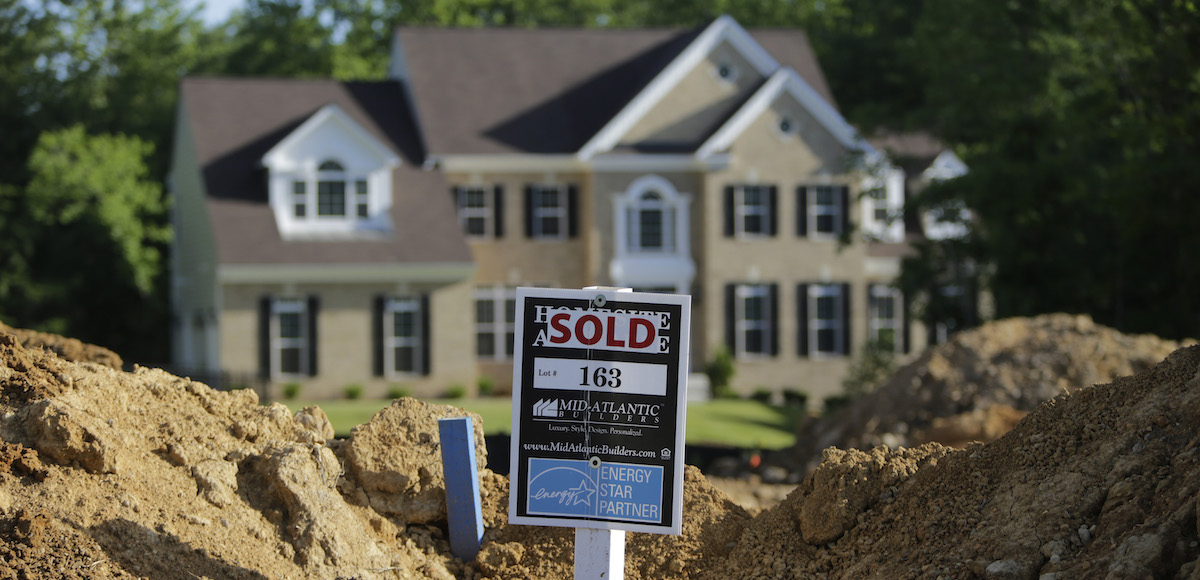

A completed house (rear) is seen behind the earthworks of a home currently under construction at the Mid-Atlantic Builder’s ‘The Villages of Savannah’ development site in Brandywine, Maryland May 31, 2013. (Photo: Reuters)
The National Association of Home Builders/Wells Fargo Housing Market Index (HMI) finds builder confidence ticked down just 1 point to 69 in April, despite supply-side constraints.
“Strong demand for housing is keeping builders optimistic about future market conditions,” said NAHB Chairman Randy Noel, a custom home builder from LaPlace, La. “However, builders are facing supply-side constraints, such as a lack of buildable lots and increasing construction material costs. Tariffs placed on Canadian lumber and other imported products are pushing up prices and hurting housing affordability.”
The NAHB/Wells Fargo Housing Market Index has been gauging builder perceptions of current single-family home sales and sales expectations for the next six months for 30 years. It rates perceptions as “good,” “fair” or “poor.” The survey also asks builders to rate traffic of prospective buyers as “high to very high,” “average” or “low to very low.”
Looking at the three-month moving averages for regional HMI scores, the South remained unchanged at 73, the Northeast ticked down one point to 55, while the Midwest fell 2 points to 66 and the West declined 3 points to 76.
“Ongoing employment gains, rising wages and favorable demographics should spur demand for single-family homes in the months ahead,” said NAHB Chief Economist Robert Dietz. “The minor dip in builder confidence this month is likely due to winter weather effects, which may be slowing housing activity in some pockets of the country. As we head into the spring home buying season, we can expect the market to continue to make gains at a gradual pace.”
The most damning journalistic sin committed by the media during the era of Russia collusion…
The first ecological study finds mask mandates were not effective at slowing the spread of…
On "What Are the Odds?" Monday, Robert Barnes and Rich Baris note how big tech…
On "What Are the Odds?" Monday, Robert Barnes and Rich Baris discuss why America First…
Personal income fell $1,516.6 billion (7.1%) in February, roughly the consensus forecast, while consumer spending…
Research finds those previously infected by or vaccinated against SARS-CoV-2 are not at risk of…
This website uses cookies.